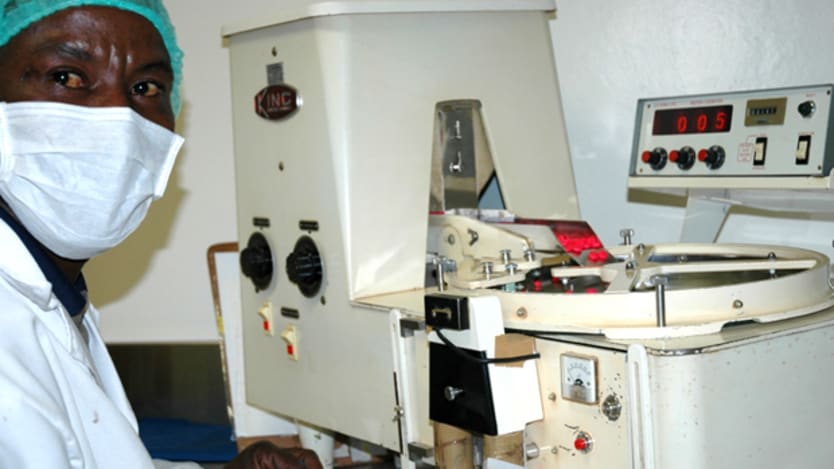
We’ve gotten an early glimpse of how the U.S. government’s flagship HIV/AIDS relief initiative will try to become more sustainable — and it should come as no surprise to an aid community that has grown accustomed to finding the same word on the tip of nearly everyone’s tongue in recent months: “partnership.”
Last week, the President’s Emergency Plan for AIDS Relief signed a new, three-year memorandum of agreement with the Millennium Challenge Corp. as part of a growing effort to improve the initiative’s long-term sustainability by transitioning U.S. support for HIV and AIDS programming toward greater host-country responsibility and ownership.
PEPFAR and MCC are currently finalizing the list of countries where they will conduct their joint effort, according to Mamadi Yilla, director for sustainability and integration at the Office of the Global AIDS Coordinator.
The agreement’s architects have been careful to maintain a distinction between what counts as MCC programming, and what counts as PEPFAR programming.
“MCC will not be implementing PEPFAR programming, but will provide technical assistance to PEPFAR to help advance country ownership,” Yilla told Devex.
The specific details of how that technical assistance procurement between the two agencies will work remain however unclear.
“The MoA identifies funds that will be made available from PEPFAR’s budget for this specific joint effort over the next three years,” explained Yilla, clarifying that “MCC will not be involved in any management or implementation of PEPFAR service delivery in PEPFAR countries.”
More integration to come?
PEPFAR has enjoyed consistent and robust support from U.S. lawmakers and budget appropriators since it was initiated by former President George W. Bush in 2003; current President Barack Obama asked for roughly $6.4 billion in fiscal year 2015 out of an overall budget request of $50.6 billion.
Some aid leaders have complained that too much of the U.S. assistance budget is tied up in individual “earmarked” initiatives that succeed in attracting support from Congress, while reducing the government’s flexibility to fund other high-priority programs. Despite the Department of State’s insistence on the two agencies’ separate programming spheres, the partnership between PEPFAR and MCC could be seen by some as a signal for greater integration to come.
PEPFAR’s current leadership transition and recent reauthorization have contributed to a sense that now is the time to reconsider how U.S. agencies deliver support for countries stricken by the global health epidemic.
Some African economies have posted economic growth rates among the most rapid in the world, and the continent’s apparent investment potential led Obama to commit to a relationship with Africa that promotes trade over aid.
With that sentiment in mind, many have asked how PEPFAR will transition from an emergency fund that supplies health commodities and treatments to countries facing AIDS emergencies to a “health systems” initiative that compels partner countries to take responsibility for addressing their own institutional gaps.
“Country ownership has been at the very core of MCC's mission since its creation a decade ago,” said Yilla. “PEPFAR hopes to leverage this depth of experience to learn best practices in strengthening public administration capacity that will promote sustainability of national HIV/AIDS responses and to help evolve how PEPFAR works together with partner countries to strategically plan PEPFAR resources.”
MCC’s incentive-based model for U.S. aid investment rewards partner countries with U.S. funding after they achieve certain benchmarks related to anti-corruption, gender equality, and other good governance measures.
Read more on U.S. aid reform online, and subscribe to The Development Newswire to receive top international development headlines from the world’s leading donors, news sources and opinion leaders — emailed to you FREE every business day.








